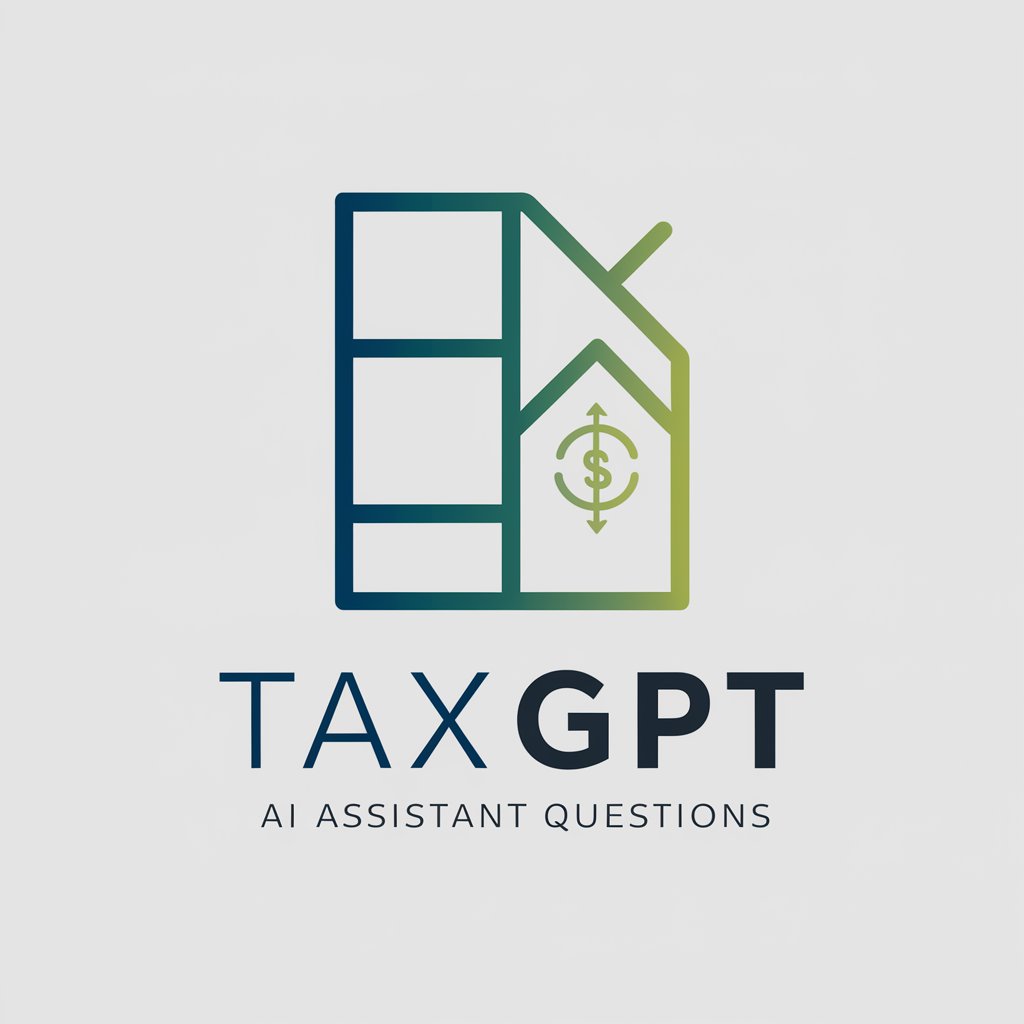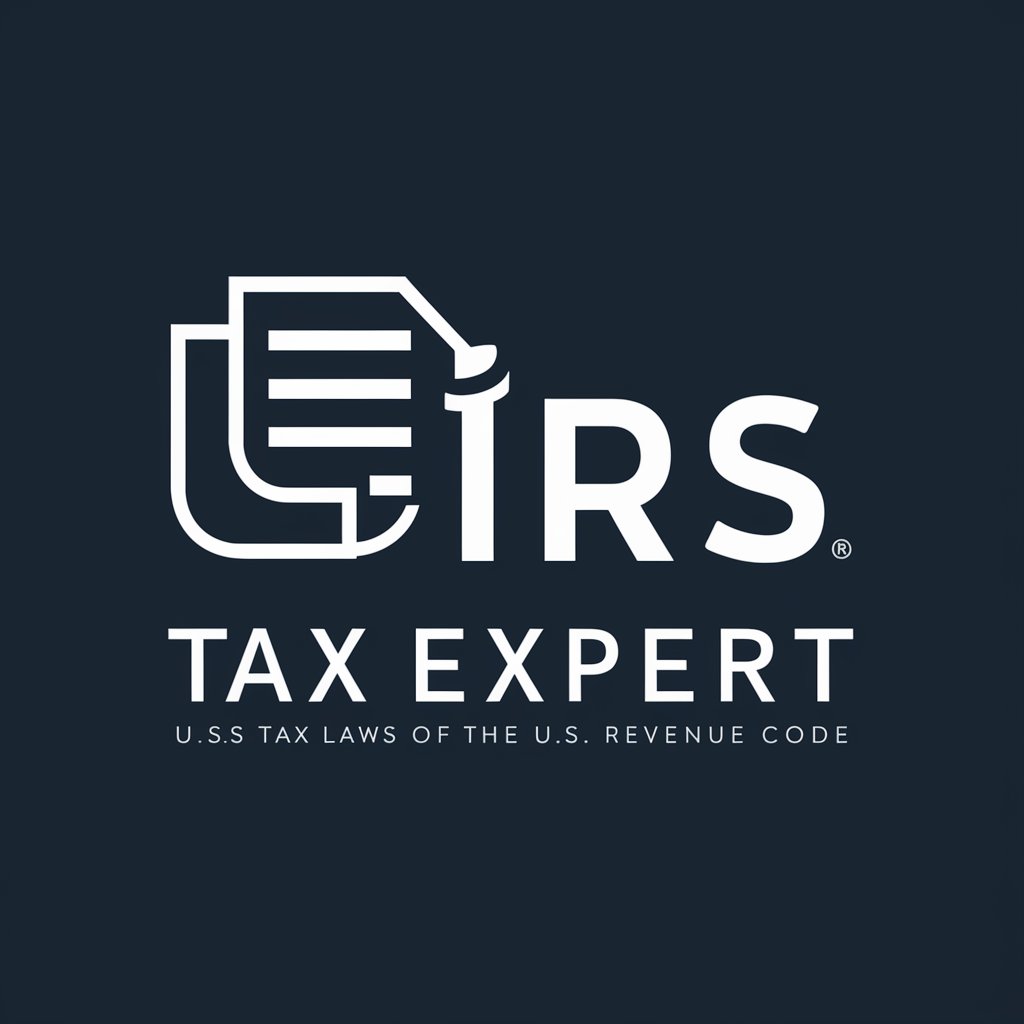8 GPTs for Tax Law Powered by AI for Free of 2026
AI GPTs for Tax Law are advanced artificial intelligence tools designed to handle a variety of tasks and topics related to tax law. Leveraging the power of Generative Pre-trained Transformers, these tools offer tailored solutions to the complexities of tax regulations, compliance, and planning. They are adept at understanding, interpreting, and generating human-like text based on tax law, making them invaluable for automating legal analyses, drafting tax-related documents, and providing guidance on tax matters.
Top 8 GPTs for Tax Law are: TaxGPT,Tax Chat Help Gpt,STEUERBERATER (SPG) ➕,Legal Ease for Business,📊 CPAHelper for Tax & Finance 🧾,Legal Guide for Portugal,Panama Legal en Español,Estate tax
TaxGPT
Simplifying Taxation with AI Expertise

Tax Chat Help Gpt
Navigating Tax Complexity with AI

STEUERBERATER (SPG) ➕
AI-powered expert tax advice in Germany

Legal Ease for Business
Empowering business decisions with AI-driven legal insights.

📊 CPAHelper for Tax & Finance 🧾
AI-powered Financial Advisor

Legal Guide for Portugal
Demystifying Portuguese Law with AI

Panama Legal en Español
Empowering you with Panamanian legal knowledge.

Estate tax
AI-powered Estate Tax Mastery

Key Attributes of Tax Law AI Tools
AI GPTs for Tax Law are distinguished by their adaptability to both simple and complex tax law functions. Core features include advanced language comprehension, capable of parsing legal jargon and tax terminology, and the ability to generate detailed, accurate responses to tax-related inquiries. These tools also offer technical support for legal research, web searching capabilities for the latest tax law developments, image creation for visual aids in presentations, and data analysis features for interpreting tax data. Additionally, they can be customized to integrate with existing tax software, enhancing their utility in legal practice.
Who Benefits from Tax Law AI Applications
AI GPTs for Tax Law cater to a wide audience, ranging from novices seeking basic tax law information to professionals like tax attorneys, accountants, and tax consultants requiring advanced assistance. They are accessible to individuals without programming skills, thanks to user-friendly interfaces, while also offering extensive customization options for those with technical expertise. This makes them a versatile tool for anyone involved in the tax law domain.
Try Our other AI GPTs tools for Free
Dialogue Polishing
Discover how AI GPTs for Dialogue Polishing can transform your dialogues, making them more engaging and contextually relevant with advanced AI capabilities.
Medication Monitoring
Discover how AI GPTs are revolutionizing Medication Monitoring with tailored, efficient solutions designed to enhance patient care and healthcare management.
Intake Logging
Discover how AI GPTs for Intake Logging revolutionize data entry and management with advanced automation, adaptability, and integration capabilities, tailored for a seamless user experience.
Adherence Support
Explore AI GPTs for Adherence Support: cutting-edge tools designed to enhance adherence in healthcare, policy, and more, with personalized support and interactive solutions.
Admission Essays
Discover AI GPTs for Admission Essays, your AI-powered assistant for crafting personalized, compelling essays that stand out. Elevate your application with tailored content and style.
Divine Inspiration
Discover how AI GPTs for Divine Inspiration revolutionize spiritual exploration and religious studies with tailored insights, guidance, and scholarly support.
Enhanced Applications in Tax Law through AI
AI GPTs function as customizable solutions across various sectors, including tax law. Their adaptability allows for integration into existing workflows, offering both foundational knowledge for beginners and deep insights for experts. These tools are designed with intuitive interfaces, simplifying complex tax law analysis and facilitating more efficient tax planning and compliance.
Frequently Asked Questions
What exactly are AI GPTs for Tax Law?
AI GPTs for Tax Law are specialized AI tools designed to assist with tax law interpretation, document drafting, and advisory tasks by leveraging natural language processing and machine learning technologies.
How do AI GPTs for Tax Law stay updated with changing regulations?
These tools incorporate web searching capabilities to fetch the latest tax law updates and use machine learning to adapt to new regulations and rulings.
Can non-experts use AI GPTs for Tax Law effectively?
Yes, these tools are designed with user-friendly interfaces that make them accessible to novices, providing simplified explanations and guidance on tax law matters.
How can professionals customize these AI GPTs for specific needs?
Professionals can use programming interfaces provided by the tools to tailor functionalities, integrate with existing systems, and focus on specific areas of tax law.
Are there any data privacy concerns with using AI GPTs for Tax Law?
These tools are developed with data privacy in mind, employing secure data handling practices to protect sensitive information and comply with legal standards.
Can these tools generate tax-related documents?
Yes, AI GPTs for Tax Law can automate the drafting of complex tax documents, ensuring accuracy and compliance with current laws.
Is technical support available for these AI tools?
Most AI GPTs for Tax Law come with technical support to assist users in navigating the tool and customizing it to their needs.
Can AI GPTs for Tax Law predict tax outcomes?
While these tools can provide analysis based on current laws and historical data, predictions are probabilistic and should be used as part of a comprehensive tax planning strategy.